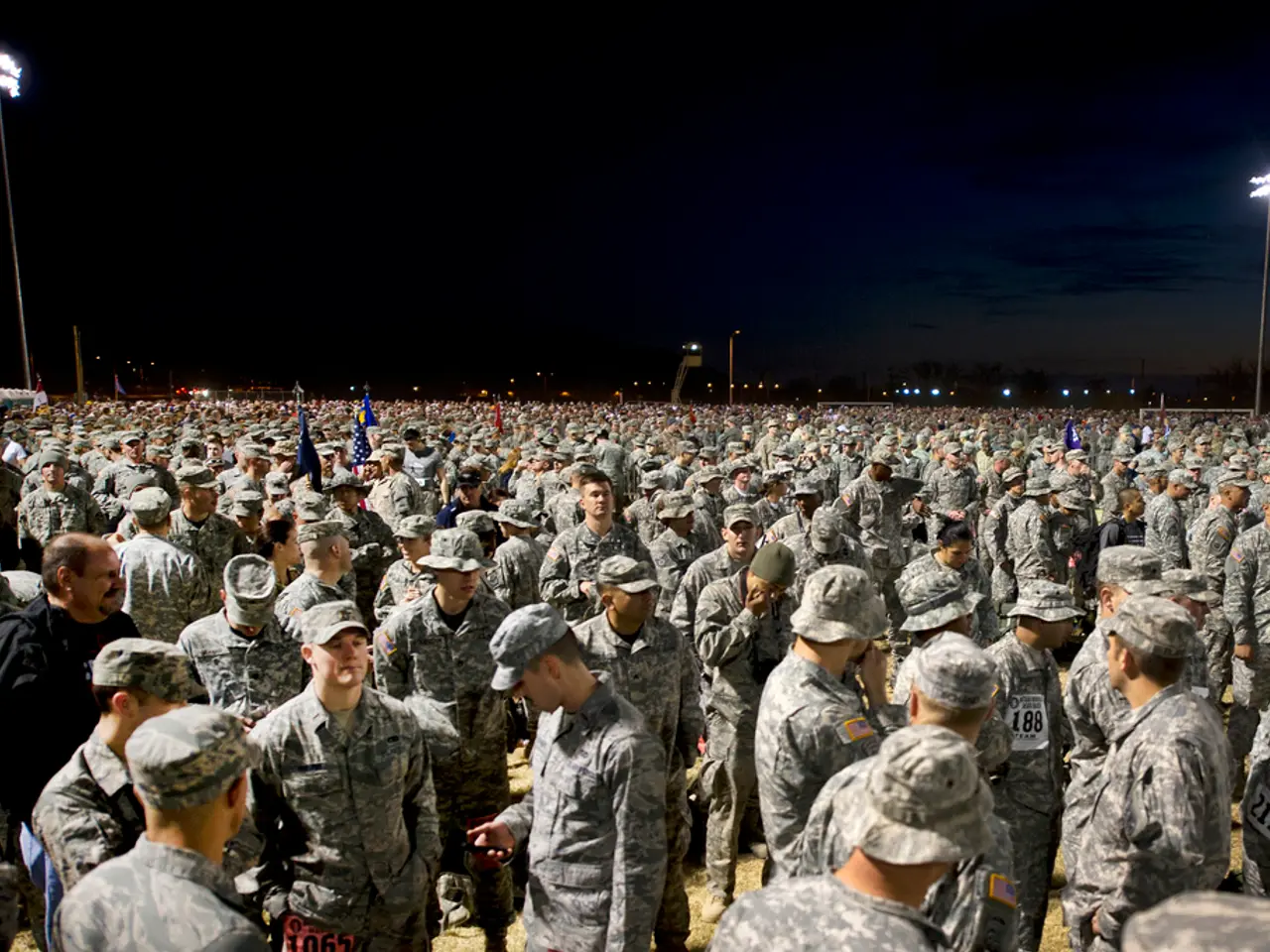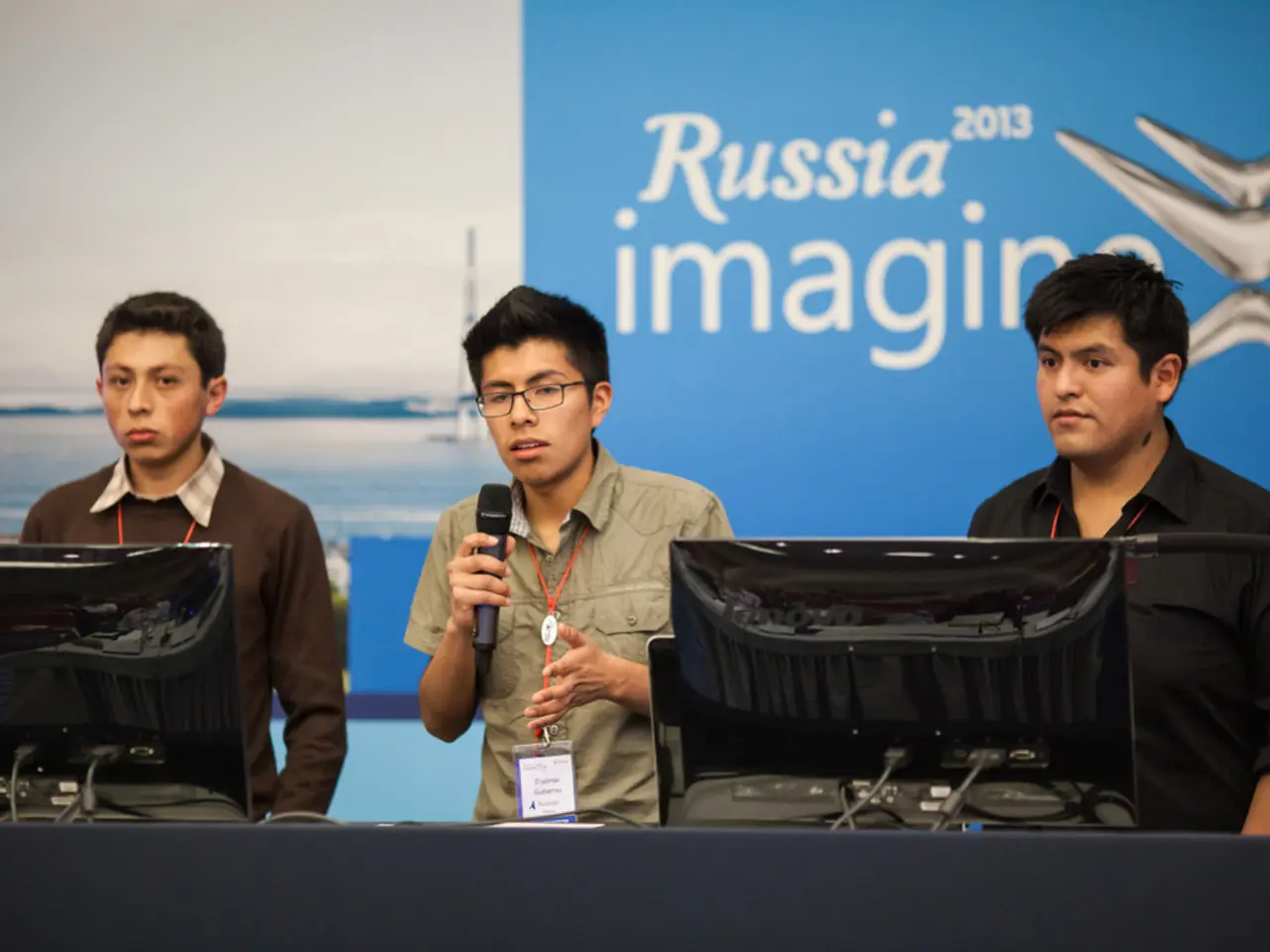High Court Limits Judges' Role in Citizenship Disputes; Trump Celebrates Court Victory
New and Improved:
U.S. Supreme Court Curbs Nationwide Injunctions in Birthright Citizenship Case
The high court handed down a 6-3 ruling on Friday, asserting that federal judges don't have the ability to slap nationwide blocks on government policies. However, the justices didn't fully settle the legal battle surrounding Trump's push to end birthright citizenship.
Justice Amy Coney Barrett, writing for the court's conservative majority, stated that Trump's restrictions on birthright citizenship will be delayed for at least 30 days. The justices sent three related cases back to lower courts to figure out if the policy should stay suspended even longer - either in specific jurisdictions or nationwide.
Trump cheered the ruling, calling it a "tremendous victory." The decision, which limits the use of nationwide injunctions, puts Trump in a stronger position to defend other contentious policies. He and his allies have consistently argued that a single federal judge shouldn't possess the authority to halt government policies nationwide.
While the legal battle continues, the Supreme Court informed the administration it could start preparing to implement the birthright citizenship policy, including issuing guidance to the public.
CEO and NFL Star's Favorite Business Sneaker 👣💼
Party Video Sparks Resignations amid Tragedy for Air India Staff 🌬🛋️
...
Trump hailed the ruling as opening the way for various blocked policies to be revived, which included ending birthright citizenship, slashing funding for sanctuary cities, stopping refugee resettlement, freezing nonessential federal funds, and ceasing federal grants.
Trump's January 20 executive order aimed to change the interpretation that the 14th Amendment grants citizenship to nearly everyone born on US soil. Under the order, citizenship would only apply to babies with at least one U.S. parent or permanent resident, meaning the newborn children of people with temporary visas wouldn't gain American citizenship.
The administration didn't ask the court to directly assess the constitutionality of the executive order, focusing instead on nationwide injunctions - a practice that has stirred up presidents from both parties throughout the years. The Supreme Court took the unusual step of hearing oral arguments on the emergency requests on May 15.
The legal dispute is being led by immigrant-rights groups, affected individuals, and twenty-two Democratic-run states, along with the District of Columbia. Each of the three cases saw a federal appeals court refuse to intervene following a trial judge's decision to block the executive order across the nation. Trump requested the high court to limit those rulings solely to parties involved in the lawsuits or the states and other jurisdictions that sued.
Justice Coney Barrett concluded that nationwide orders "likely exceed the equitable authority that Congress has granted to federal courts." However, she also left a window open for lower court judges to block the policy within jurisdictions suing them and potentially more expansively. States involved in two of the lawsuits argue that they would receive fewer federal funds if the policy took effect, as programs apply solely to citizens. They also argue that implementing the restrictions in neighboring jurisdictions would be impractical because children often move across state lines.
Critics argue that Trump is attempting to unilaterally amend part of the 14th Amendment, which grants citizenship to anyone born in the United States and "subject to the jurisdiction thereof." The Supreme Court has upheld this interpretation in the past, as shown by its decision in 1898 regarding a man born in California to two Chinese parents and its ruling in 1982 backing the right of undocumented immigrants to attend public school[1].
While the constitutionality of the executive order remains undecided, this ruling could spark a patchwork of enforcement, as the birthright citizenship order might only be allowed in some jurisdictions exempt from injunctions, while others remain protected by ongoing litigation. This sets the stage for additional legal battles, including class actions and further lawsuits at the lower court level, to determine the extent of the order's enforceability and constitutionality[2][3].
Civil liberties groups, such as the ACLU, view the decision as problematic, with concerns that it limits nationwide protections against what they see as an unconstitutional assault on birthright citizenship. They vow to persist in challenging the order in court[3].
In conclusion, the Supreme Court's decision restricts nationwide injunctions, enabling partial enforcement of the Trump administration's birthright citizenship order in limited contexts. However, the constitutionality of the order itself is still open to debate and will continue to ignite legal battles[1][2][3].
[1] - SCOTUSblog
[2] - The New York Times
[3] - ACLU
- The Supreme Court's ruling limiting nationwide injunctions could impact not only the birthright citizenship policy but also other contentious policies in fields such as health, politics, policy-and-legislation, and war-and-conflicts.
- The Trump administration's push to end birthright citizenship is part of a wider agenda that includes restricting funding for sanctuary cities, halting refugee resettlement, freezing nonessential federal funds, and ceasing federal grants.
- The legal battle over birthright citizenship is a complex one involving immigrant-rights groups, affected individuals, and Democratic-run states, along with civil liberties groups like the ACLU, who fear an unconstitutional assault on this long-standing policy.
- TheSupreme Court's decision on nationwide injunctions could lead to a patchwork of enforcement for the birthright citizenship order, with potential implications for general-news, entertainment, news, business, and other sectors where similar policies are in place or could be implemented.






